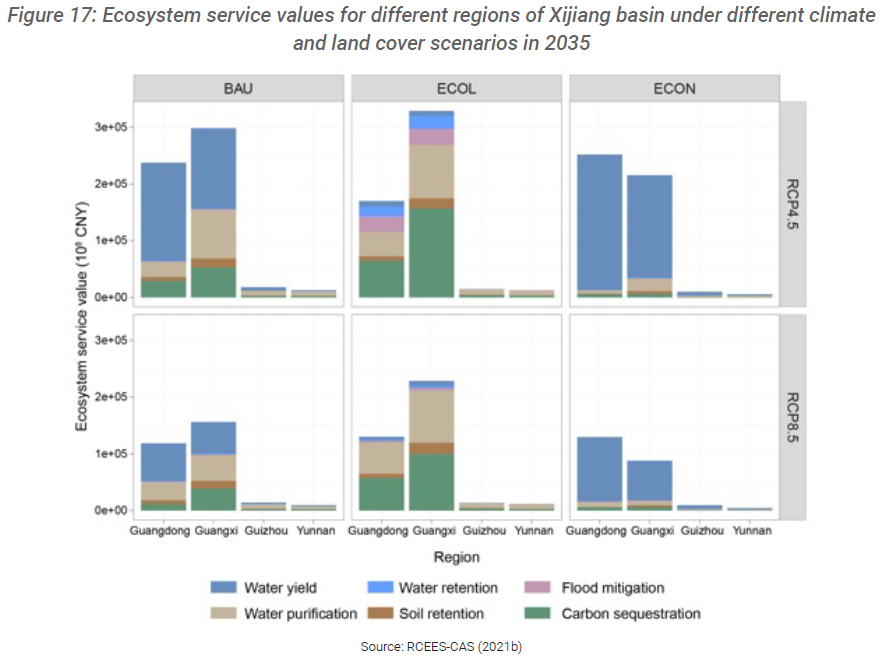Release of NCAVES China project reports during closing workshop

The Chinese government has been working with the UN Statistics Division and the UN Environment Programme to pilot ecosystem accounting using the System of Environmental Economic Accounting (SEEA) through the Natural Capital Accounting and Valuation of Ecosystem Services (NCAVES) project. Ecosystem accounts will help China assess its progress towards the long-term goal of becoming an Ecological Civilization.
NCAVES has supported the Guangxi Zhuang Autonomous Region and Guizhou Province to pilot SEEA’s ecosystem accounting framework. The results are summarized in the final project report that was released at 2nd of June during a well-visited closing workshop. The report also has several stand-alone annexes that detail the results for Guangxi province and the revised compilation guidelines; the results for Guizhou province.

Moving beyond GDP to develop and implement measures and policies that capture the benefits that natural capital provides to the economy, society and human well-being are integral to China’s vision for an Ecological Civilization that is embodied by the phrase "green mountains and clear water are equal to mountains of gold and silver." China has years of experience integrating Gross Ecosystem Product (GEP) – a measure of the value of final ecosystem services – into decision-making to evaluate the effectiveness of conservation policies. The NCAVES project has contribute towards alignment between SEEA and GEP with the result that GEP is included in the SEEA EA framework. The SEEA EA is recognized as measurement system in the post 2020 biodiversity agenda, and GEP is proposed as one of the headline indicators for its monitoring framework.

In addition, China’s ecological compensation schemes are used to help reduce poverty while encouraging ecosystem protection, by encouraging regions that are focused on industrial development to compensate other areas for protecting the critical ecosystems, such as clean water and flood resilience, upon which development relies. To demonstrate how SEEA EA can inform the calibration of such policies, a policy scenario analysis was undertaken of eco-compensation schemes in the Xijiang River Basin. The analysis draws on the compiled ecosystem accounting data and generates future scenarios for ecosystem services provision based on future land cover changes which are overlaid with climate change scenarios. The results inform the appropriate compensation rates for upstream regions to maintain their habitats in service of downstream regions.
All results of the NCAVES China workstream can be found at: https://seea.un.org/content/china-0
